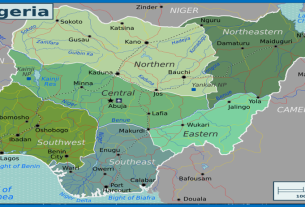Requirements for visiting Antarctica
The Antarctic Treaty signed in Washington on 1 December 1959 preserves the Antarctic continent for peaceful and scientific use.
The Antarctic Treaty’s Protocol on Environmental Protection, signed in 1991, is the only international agreement designed to protect an entire continent. It ensures that all human activity in Antarctica is carefully planned and managed. It enables a range of human activity to take place in Antarctica including scientific research, well-managed, environmentally sensitive tourism, and exploration. Crucially, the Protocol prohibits commercial mining and protects vulnerable areas, animals and plants.
The Antarctic Treaty does not prevent tourists, military personnel or scientific researchers from being present in Antarctica, but they do require an appropriate permit from a Treaty Party.
Permit criteria
Anyone on a British expedition to Antarctica or taking a British vessel or aircraft into Antarctica will need to apply for a permit from the Polar Regions Department of the Foreign, Commonwealth & Development Office (FCDO).
A British expedition is one organised in the UK (including a British overseas territory, or a Crown Dependency) or one where the last place of departure for Antarctica is the UK, a British overseas territory, or a Crown Dependency. ‘Expedition’ consists of a single person or group, undertaking a tour or journey of any purpose, including activities such as landing ashore, skiing, kayaking, small boat activities, climbing, diving or any related activity. A British (including OT or Crown Dependency) flagged vessel or registered aircraft also requires a permit even if the expedition is organised elsewhere.
You do not need a permit for:
- ships or aircraft travelling to an immediate destination outside Antarctica
- fishing vessels, unless they are conducting research fishing or are carrying out functions related to an expedition
- expeditions organised in and authorised in writing by another contracting party (country) to the Environmental Protocol to the Antarctic Treaty
If you plan to undertake commercial fishing activity in the Southern Ocean, you must seek separate authorisation for your vessel, as set out in the guidelines to CCAMLR fisheries for British registered vessels fishing for profit.
It is also unlikely that you will need a permit if you are a passenger on an organised visit to Antarctica, as your tour operator would usually arrange this. However you should confirm this with them before travelling. Contact the Polar Regions Department if you are unsure.
Applying for a permit
You should submit applications for permits as far in advance as possible. This should be at least 4 months for a new or unusual application, or at least 2 months before the date of your departure if you have previously obtained a permit for summer activities. Late applications may not be considered.
Organisers must demonstrate that they are sufficiently prepared for a visit to Antarctica. You should discuss your plans informally with the Polar Regions Department before you begin completing the permit application. This is especially important if your expedition involves specialist activities such as extreme sports, extended trips or multiple transport options.
Consistent with the agreement by the Antarctic Treaty Parties, the UK will not authorise operators organising or conducting tourist or other non-government activities to undertake any off-ship activities in Antarctica from vessels carrying more than 500 passengers. Exceptions will be made in cases of emergency and for the purpose of enhancing human safety. The UK will also not normally authorise the use of helicopters for recreational purposes in areas with concentrations of wildlife, including the Antarctic Peninsula region.
It should also be noted that for safety reasons the UK will not authorise snorkelling activities in the Antarctic.
Applying for a permit to conduct research fishing
You must conduct research fishing in the Antarctic Treaty Area in accordance with the Convention for the Conservation of Antarctic Marine Living Resources (CCAMLR), in particular its Conservation Measure 24-01.
Research fishing under paragraph 2 of CM24-01 involves taking less than 50 tonnes of finfish. If you are proposing to conduct research fishing under paragraph 2, you must:
- confirm that you will comply with all relevant CCAMLR Conservation Measures
- confirm that you will meet the requirements of CCAMLR Conservation Measure 24-01
- complete an Expedition Permit Application Form and submit this to the Polar Regions Department
- provide the information required in CM 24-01 Annex A, Format 1
This paragraph does not apply for catches of krill and finfish of less than one tonne.
Research fishing under paragraph 3 of CM24-01 involves taking more than 50 tonnes of finfish. Any proposals to conduct research fishing of this nature will be approved at the annual CCAMLR meeting in October or November 2024.
If you are proposing to conduct research fishing under paragraph 3, you must:
- confirm that you will comply with all relevant CCAMLR Conservation Measures
- confirm that you will meet the requirements of CCAMLR Conservation Measure 24-01
- complete Sections 1 to 6 of an Expedition Permit Application Form, and submit this together with the required Research Plan to the Polar Regions Department by 12 May 2024. The CCAMLR scientific working groups will consider applications, including at the annual CCAMLR meeting in October or November 2024
- provide all the information required in CM 24-01 Annex A, Format 2
Application forms and guidance
For a land or vessel based expedition you can download the permit application form and guidance below. For further information contact the Polar Regions Department.
If you plan to undertake more specialist activities in Antarctica (such as wildlife monitoring or scientific research), it is likely you will need a separate permit. For further information contact the Polar Regions Department.
Once the expedition is complete, you will need to complete these post visit reports:
Telephone: 020 7008 5000
Email: [email protected]
Address:
Polar Regions Department
Foreign, Commonwealth & Development Office
Room W2.72
King Charles Street
London
SW1A 2AH
Publishing application details
Applicants should be aware that within 10 days from the Polar Regions Department confirming receipt of any permit applications, the FCDO will openly publish information relating to these applications on this website. This will include application type, applicant name, duration of visit, proposed itinerary and the contact details of the applicant. See our privacy notice.
UK Antarctic enforcement policy and procedures
The FCDO is responsible for ensuring that the UK’s Antarctic legislation is fully complied with. See our UK Antarctic Enforcement Policy and Procedures page for further details.
Comprehensive Environmental Evaluations (CEEs) received for activity in Antarctica 2024 to 2025
No CEEs have currently been received. When received, we publish the name, company, purpose and location, and date received and CEE.
Initial Environmental Evaluations (IEEs) received for activity in Antarctica 2024 to 2025
No IEEs have currently been received. When received, we publish the name, company, purpose and location, and date received and IEE.
Applications received for expeditions 2024 to 2025 season
| Permit applicant | Email address | Vessel/aircraft name | Purpose and date of visit | Brief itinerary |
|---|---|---|---|---|
| Hurtigruten Expeditions | [email protected] | multiple vessels | Tourism October 2024 to March 2025 | Antarctic Peninsula |
| Siobhan Vye | [email protected] | National Geographic Explorer | Scientific research October 2024 to November 2024 | Antarctic Peninsula |



